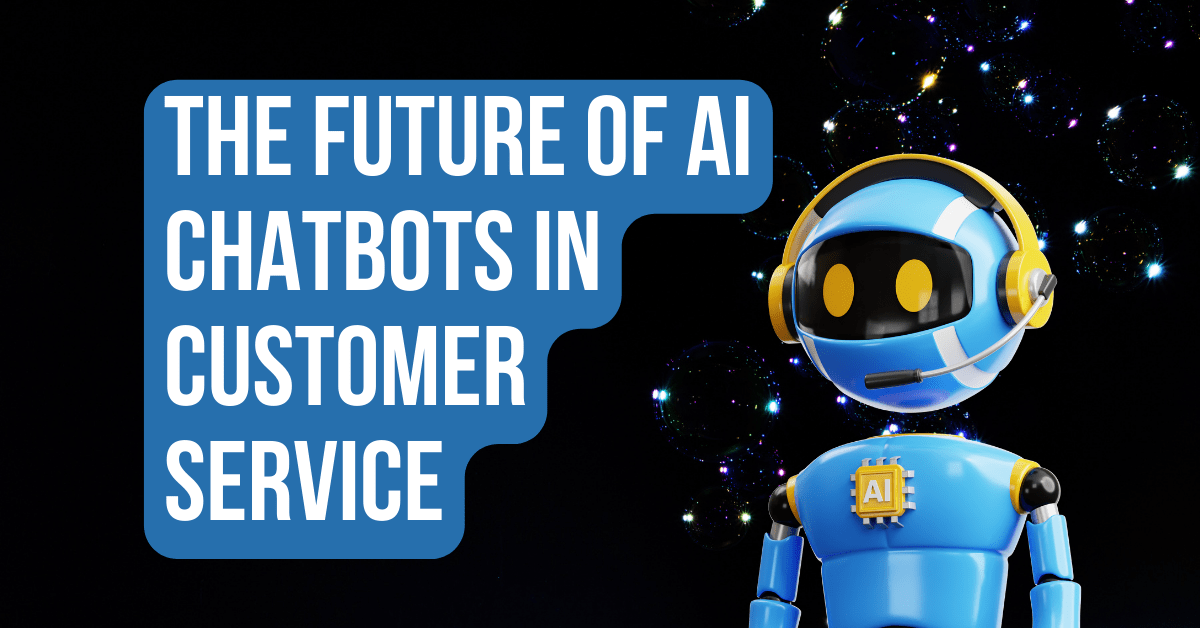With advancements in artificial intelligence (AI) technology, businesses are increasingly turning to AI chatbots to enhance their customer service experiences. AI chatbots offer a range of benefits, including improved availability and responsiveness, time-saving capabilities, and personalized interactions. However, they also come with challenges, such as the need to bridge the empathy gap and address ethical considerations. In this blog post, we will explore the future of AI chatbots in customer service and how they can enhance the overall customer experience.
AI Chatbots: A Glimpse into the Future
AI chatbots have evolved significantly, from rule-based bots to machine learning-driven conversation agents. These advancements have allowed chatbots to understand and respond to customer queries more accurately and efficiently. For businesses, AI chatbots offer tremendous potential in terms of time-saving benefits, improved availability, and the ability to personalize customer interactions.
Enhancing Customer Experience through AI Chatbots
One of the key advantages of AI chatbots is their ability to provide personalized support to customers. Through advanced natural language processing capabilities, chatbots can understand and interpret customer queries more effectively. This enables them to offer tailored recommendations and solutions that meet the specific needs of each individual customer, enhancing their overall experience.
Seamless Integration: Omnichannel customer service
Another area where AI chatbots excel is in ensuring a seamless customer service experience across multiple channels. Through omnichannel integration, chatbots can maintain continuity in customer conversations as customers switch between platforms. This reduces customer frustration and dissatisfaction by allowing them to receive efficient self-service options and escalation pathways, regardless of the communication channel they choose.
AI Chatbots: Enhancing Customer Service Efficiency
24/7 Availability and Instant Responses
One of the key advantages of AI chatbots is their round-the-clock availability. Unlike human agents, they can handle customer queries and provide immediate responses at any time of the day. This 24/7 availability is crucial for businesses operating in different time zones or those dealing with urgent customer issues. Whether it’s a simple question or a complex problem, AI chatbots can instantly address customer concerns, improving response times and overall customer satisfaction.
Streamlined Customer Support Workflow
By automating basic customer inquiries and tasks, AI chatbots streamline the customer support workflow. Simple queries that would typically require human intervention can now be handled by chatbots, freeing up live agents to focus on more complex issues. This not only improves efficiency but also ensures that customers receive prompt attention, leading to quicker resolution of their problems.
Multilingual and Personalized Experiences
AI chatbots have the ability to transcend language barriers, making them a valuable asset for global businesses. Through natural language processing, chatbots can understand and respond to messages in multiple languages, enabling effective communication with customers from different regions. Additionally, AI chatbots can provide personalized experiences by tailoring responses based on customer preferences and previous interactions. This level of customization enhances customer satisfaction and builds long-term relationships.
Enhancing Customer Engagement and Satisfaction
Natural Language Processing and Understanding
Thanks to advancements in natural language processing (NLP), AI chatbots are becoming increasingly proficient at understanding the context and complexity of customer inquiries. This allows them to provide more accurate and relevant responses, leading to improved communication with customers. Moreover, the ability of chatbots to interact in a human-like manner creates a more engaging experience, increasing customer satisfaction and fostering a positive brand image.
Proactive Customer Assistance
AI chatbots have the capability to analyze customer data and predict their needs, enabling them to offer proactive assistance. By leveraging historical data and behavioral patterns, chatbots can provide personalized recommendations, suggestions, and even anticipate potential issues before they arise. This level of proactive support not only improves customer experience but also strengthens customer loyalty and encourages repeat business.
Empathy and Emotional Intelligence
Emotions play a significant role in customer interactions, and AI chatbots are now being equipped with empathy and emotional intelligence capabilities. Through sentiment analysis and emotional recognition algorithms, chatbots can discern and respond to customer emotions. They can provide empathetic responses, offer reassurance, and engage in supportive conversations, thereby creating a more emotionally satisfying customer experience.
The Challenges and Ethical Considerations of AI Chatbots
Ensuring Data Privacy and Security
While AI chatbots offer numerous benefits, data privacy and security concerns must be addressed. Businesses need to ensure that customer information is safeguarded and protected from potential data breaches or misuse. Implementing robust security measures, such as encryption and access controls, as well as complying with data protection regulations, is essential in building trust with customers and maintaining their privacy.
Striking the Right Balance Between Automation and Human Interaction
While AI chatbots excel at automating tasks and providing efficient responses, it’s crucial to strike the right balance between automation and human interaction. Customers value the human touch, especially in complex situations or when dealing with sensitive issues. Integrating live agents alongside chatbots allows businesses to handle nuanced conversations, showcase empathy, and provide the personalized support that some customers may prefer.
User-Friendly Design and Adaptability
The technology behind AI chatbots is continuously evolving, and businesses must ensure that their chatbot’s design and adaptability keep pace with these advancements. User-friendliness and ease of interaction are paramount to provide a seamless customer experience. Regular updates, incorporating customer feedback, and ongoing improvements to the chatbot’s knowledge base and capabilities are crucial to delivering a satisfactory user experience.
Overcoming Limitations
While AI chatbots offer numerous benefits, there is a need to bridge the empathy gap that exists in automated interactions. Striking the right balance between automation and human touch is crucial to deliver a truly satisfying customer experience. Incorporating emotional intelligence into chatbots’ responses and providing mechanisms for customers to escalate to human support for complex issues can help address this challenge.
Ethical considerations and data privacy
As AI chatbots gather and process customer data, it is essential to ensure responsible use and protect customer privacy. Transparent data collection processes, along with clear consent mechanisms, are crucial for building trust with customers. Additionally, businesses must address potential biases and discriminatory practices that may arise from the use of AI chatbots, ensuring fairness and equal treatment for all customers.
The Role of Humans in an AI-driven Customer Service Landscape
Despite the advancements in AI chatbot technology, humans still play a crucial role in customer service. Collaborative AI, where chatbots and human support work together, can provide the best of both worlds. Complex issues that require empathy and advanced problem-solving skills can be handled by human representatives, while chatbots focus on routine and repetitive tasks. This approach allows businesses to provide efficient support while maintaining a personal touch.
Upskilling and reskilling customer service representatives
As AI chatbots take on more automated tasks, customer service representatives need to upskill and reskill to meet the evolving demands of their roles. Emphasizing skills like empathy, problem-solving, and emotional intelligence can help representatives excel in providing higher-value customer support. By focusing on relationship-building and more complex customer issues, representatives can deliver a more personalized and satisfying experience.
Conclusion
The future of AI chatbots in customer service looks promising, with the potential to enhance customer experiences in an automated era. AI-powered chatbots offer personalized support, seamless integration across channels, and efficient self-service options. However, it is crucial to address ethical considerations and bridge the empathy gap in customer interactions. By embracing collaborative AI and upskilling customer service representatives, businesses can strike the right balance between automation and human touch, ensuring a satisfying customer experience.
Thank you for reading! Share your experiences and questions in the comments below!




